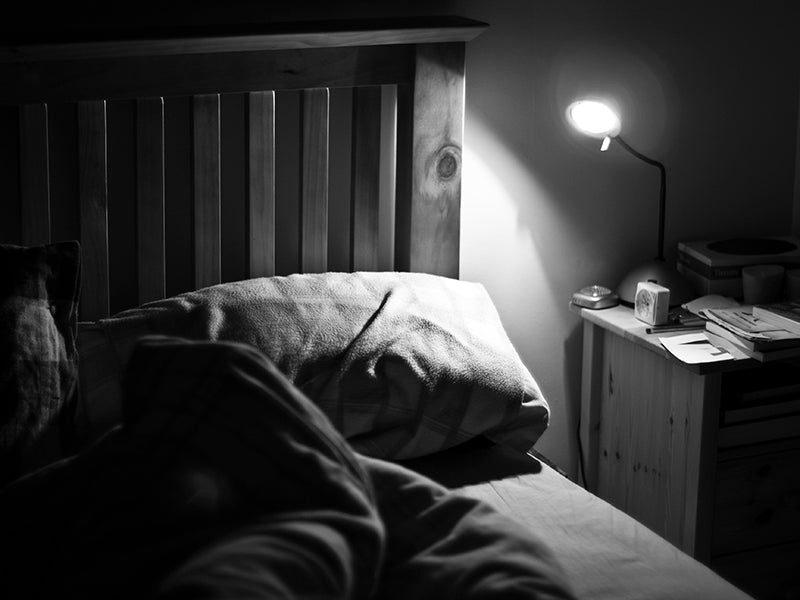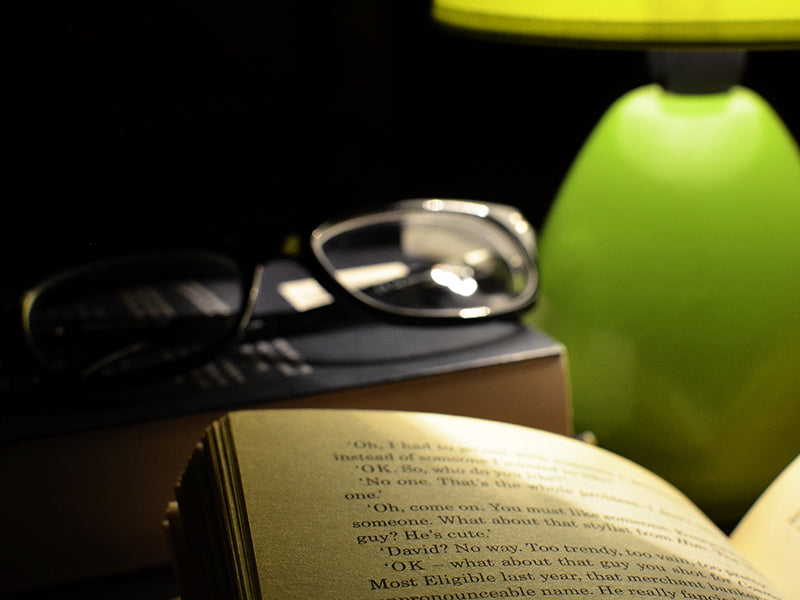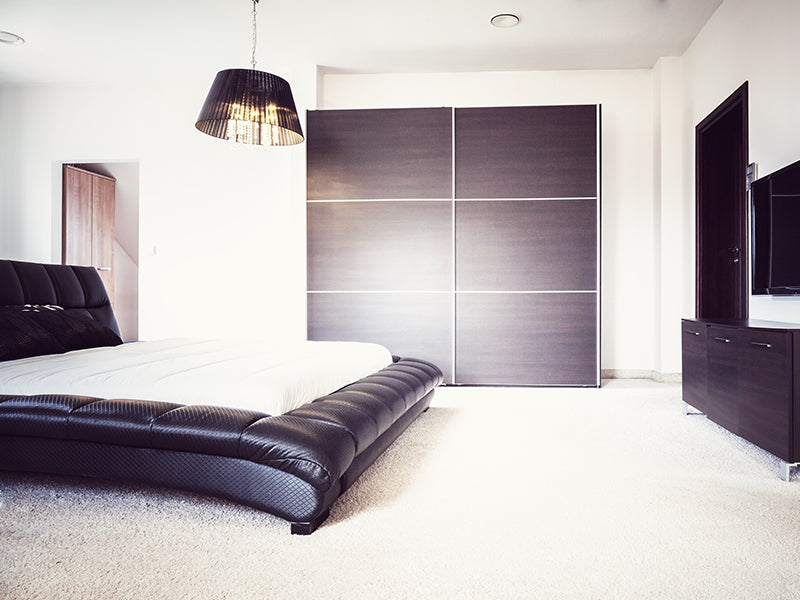After Myles Run Club joined the grassroots fitness movement The November Project for some stair runs at the crack of dawn, we started thinking seriously about the benefits of a good night’s sleep. We reached out again to our friend and Myles Man, Will Maloney, a healthy lifestyle blogger, former Stanford strength coach, and top Equinox trainer, for advice on bedtime habits that will set you up for a revitalizing night.

After any long day, it’s typical to unwind with a movie, a Netflix binge, or mindless web surfing. It's a way of downloading our day, decompressing, and simply vegging out. Then we realize it’s getting late, and we know if we stay up any longer we’re in for a rude awakening when the alarm blares in the morning. We speed through brushing our teeth, set an alarm (or two), and check our email one last time before our head hits the pillow.
There’s a good chance this routine sounds familiar. Our bedtime habits are often rushed and disorganized. There’s been a lot written about how top performers begin their day to prep for success, but what about productive evening routines?
Healthy bedtime habits, which help us recover from the day, perform optimally (and not to mention look great), are the key to better sleep. I've never had anybody tell me that I look refreshed, but I definitely hear it from people when I look unrested.
IF YOU'RE TRYING TO IMPROVE YOUR HEALTH, IT ALL STARTS WITH SLEEP, THEN NUTRITION, THEN EXERCISE—IN THAT ORDER OF IMPORTANCE.
If you're trying to improve your health, it all starts with sleep, then nutrition, then exercise—in that order of importance. Recovery is what dictates our overall performance at work, at the gym and even in our relationships.
Work on these habits to build a reliable bedtime routine, so your wake-up routine is even easier and your whole day kicks ass.

The Daily Cooldown
Most of us unwind from the hustle, stress, and high from the day by staring at a screen. But the stimulation from TV and web surfing keeps the brain working overtime. In fact, some studies show that the blue light rays emitted from digital devices delay the sleep hormone melatonin, which helps us fall asleep. No bueno.
The solution is to schedule a window of screenless down time for at least a half hour before you shut your eyes for the night. This could be reading a book the old fashioned way, or simply chatting with your significant other about the day. Or use this time to relax mind and body by using a foam roller followed by a good stretch.
This daily cooldown gives us a nice foundation for quality sleep throughout the night, just as a solid morning routine sets up our day.
Bedroom Atmosphere
While sometimes all we want to do is pass out on the couch with the TV, this is a recipe for a restless night. It’s important to design a space meant for sleep.
For starters, your bedroom temperature should be around 68-72 degrees Fahrenheit and the room should be you-can't-see-jack, pitch-black dark. Eye masks help, but even light hitting the skin triggers the wake-up hormone cortisol. If it’s bright outside your bedroom windows, consider installing some black-out shades.
This is perhaps obvious, but your room needs to be quiet. The low steady hum of a fan can help block out loud neighbors or spouses that snore like a disgruntled old hound dog. Moving out probably isn’t an option so make sure to keep a pack of quality earplugs in your nightstand.
YOU SPEND A THIRD OF YOUR LIFE IN BED, SO THIS ISN'T THE PLACE TO CUT CORNERS
Clean, comfortable bedding is also important, but start with the above first before you go shopping for a new mattress. When it is time to upgrade, consider investing in a quality mattress and sheets. Look at it this way: You spend a third of your life in bed, so this isn’t the place to cut corners.

Sleep Time
One way to figure out your natural sleep pattern is to get away from the city lights and digital distractions and go camping for a week. Everybody is different, but generally the ideal time for optimal, life-changing sleep from about 10pm-6am. This lines up with the body's innate sleep cycle, known as our Circadian rhythm. Our body’s sleep hormones peak after sunset and wake-up hormones generally peak around dawn. From 10pm-2am, the body does all of its physical repair from the day. From 2am-6am, the body does its work to recover the nervous system.
If you go to bed late or wake up too early, then you're shorting yourself on one of these areas. So if you're sore from a workout, get to bed earlier. And if you're feeling out of it mentally, we don't need to tell you how much sleeping in for an hour can get you back on track.
Follow these tips and you will have a solid foundation for optimal sleep every night. Pick up more healthy habits from Will Maloney, such as healthy recipes here, and check out his website, www.willmaloney.com.


